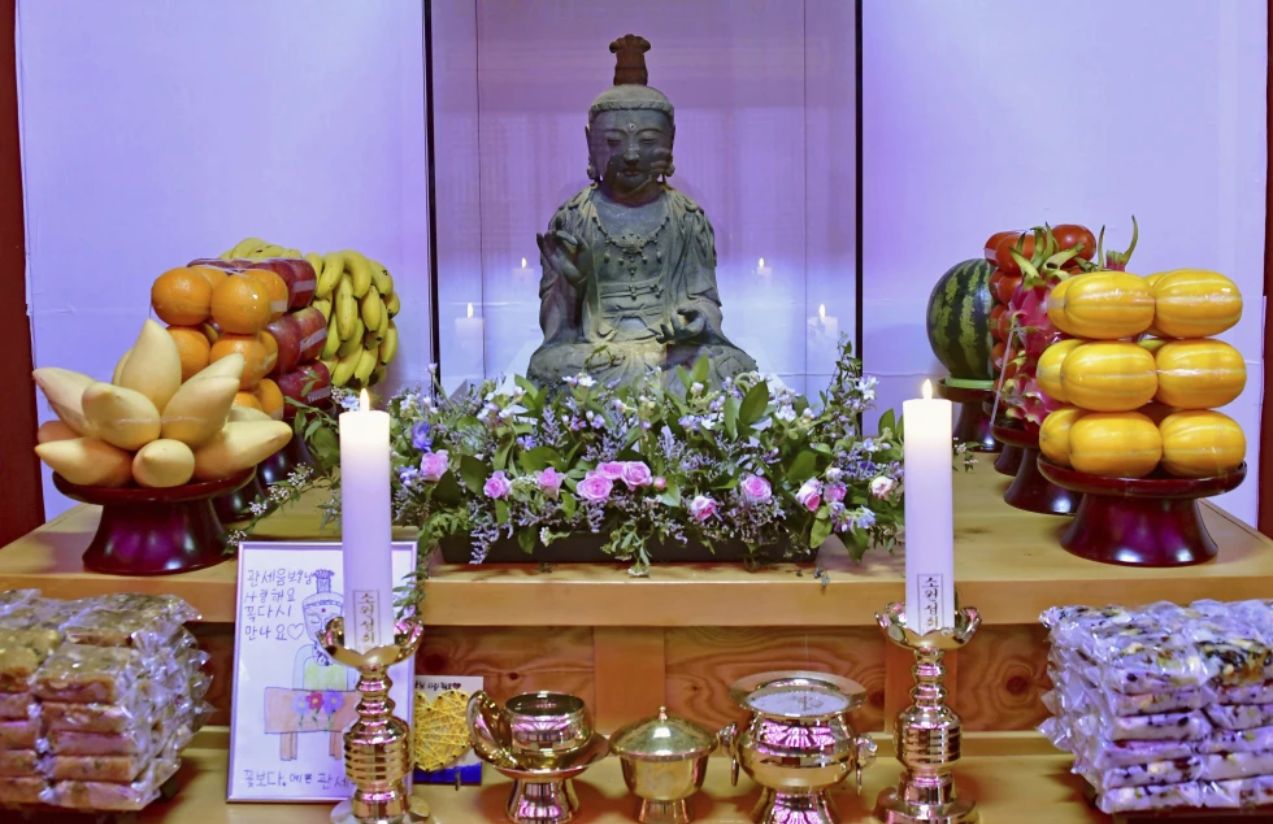A 14th-century Korean Buddhist statue that was stolen from a Japanese temple almost 13 years ago was returned to its rightful place on Monday, ending a prolonged legal battle that reignited historical tensions between Japan and South Korea.
The statue, a golden-bronze image of the Bodhisattva known for his compassion, was welcomed with applause by monks and local residents upon its arrival at Kannonji Temple on the Japanese island of Tsushima. Transported in a wooden crate, the statue was carried by truck along the road lined with faithful. It is expected that, after a ceremony at the temple, the piece will be housed in a local museum.
Standing about 50 centimeters tall, the statue was designated a cultural asset of the region and was one of two stolen from Kannonji in 2012 by thieves attempting to sell them in South Korea. While the other statue was returned shortly after its recovery, the second remained at the center of a legal dispute after being claimed by Buseoksa Temple in South Korea, which argued it was the rightful owner.
In 2023, South Korea’s Supreme Court ruled in favor of the Japanese temple, ordering the statue’s return. Although the legal formalities were completed in January, the statue remained on a 100-day loan to the South Korean temple for a farewell exhibition.
Buseoksa expressed deep sorrow over the statue’s return. “All our faithful… feel like crying,” said the temple’s chief monk Woonou in a phone interview with The Associated Press, insisting that Japan “looted” the statue from Korea and that the act deserves “international condemnation.”
Meanwhile, Sekko Tanaka, former chief monk at Kannonji Temple, told reporters that the handover ceremony in South Korea was “truly friendly,” adding that both sides even shook hands. “A calm after the storm,” he expressed, relieved to see the dispute resolved during his lifetime.
Although the tension over this case has been resolved, the historical backdrop between the two countries remains. Japan and South Korea continue to have differences over the atrocities committed during Japan’s colonization of the Korean Peninsula from 1910 to 1945, though their relations have improved in recent years due to shared regional security concerns.

